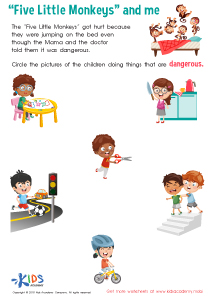Vocabulary expansion Easy Building Vocabulary Worksheets for Ages 3-9
7 filtered results
-
From - To
Unlock the power of words with "Vocabulary Expansion: Easy Building Vocabulary Worksheets for Ages 3-9". Designed to foster a love for language in young learners, these engaging and fun activities enhance word recognition, usage, and comprehension. Perfect for kids just starting to read, our worksheets include colorful illustrations and interactive exercises that boost vocabulary retention. Whether your child is a beginner or looking to strengthen their skills, our worksheets provide a solid foundation for academic success. Rediscover the joy of learning with easy and effective resources tailored to spark curiosity and language mastery in children ages 3 to 9.
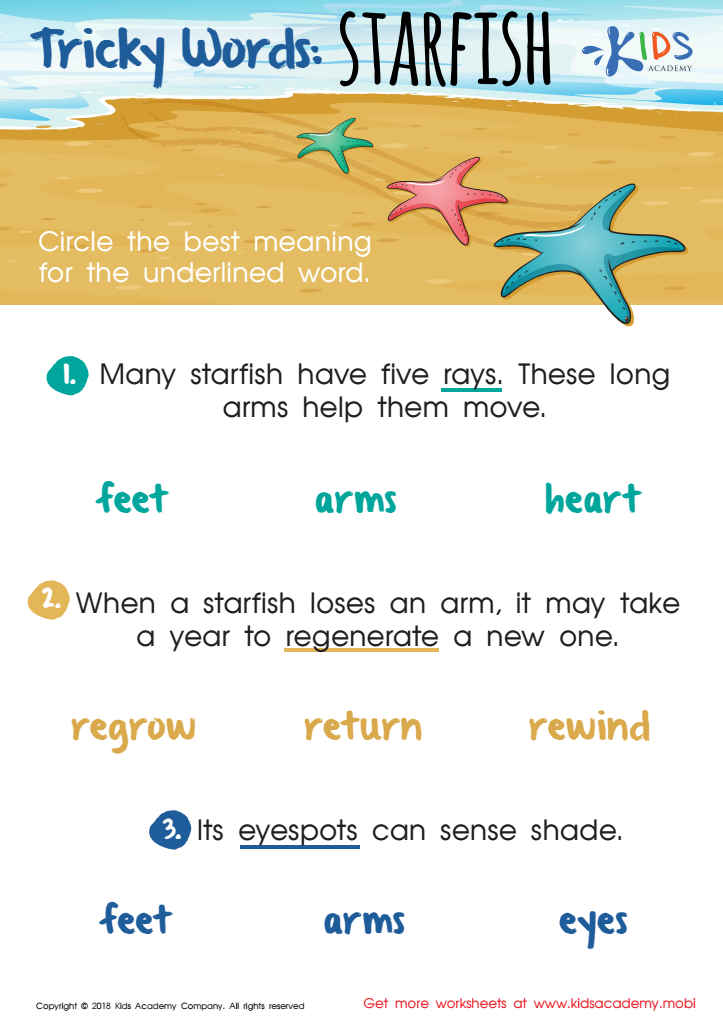

Tricky Words: Starfish Worksheet


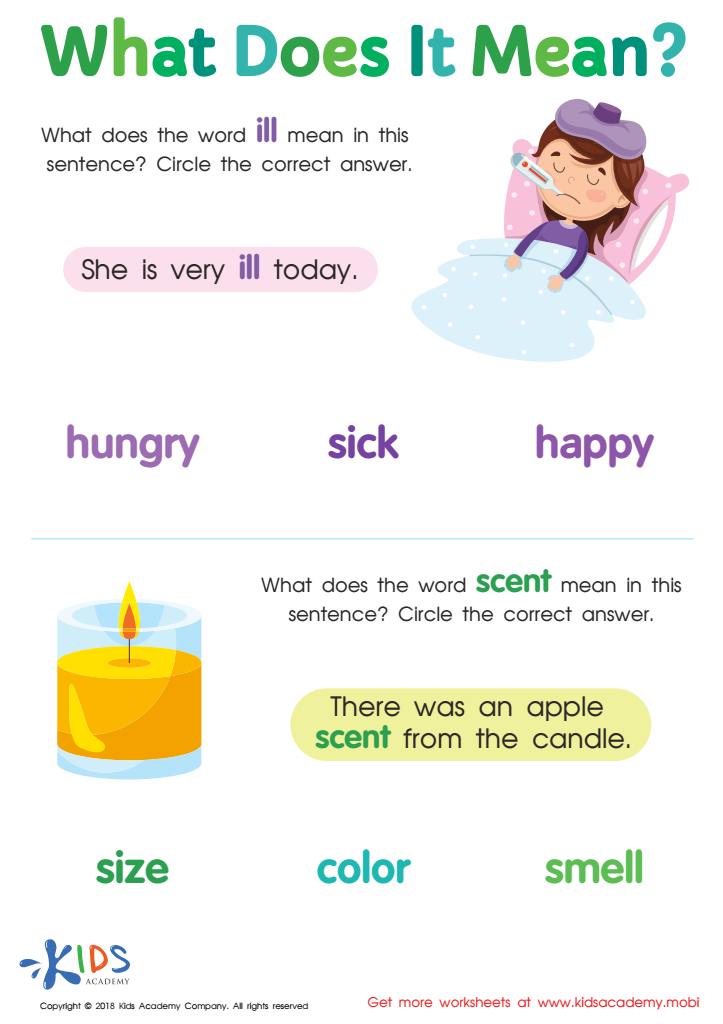

What Does It Mean? Worksheet
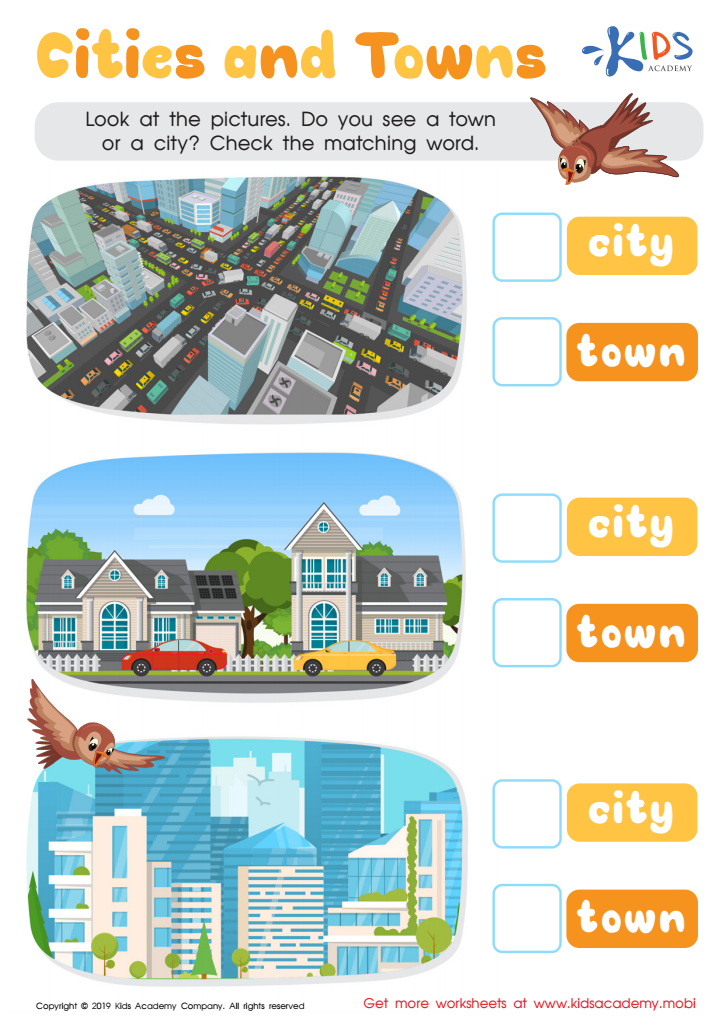

Cities and Towns Worksheet
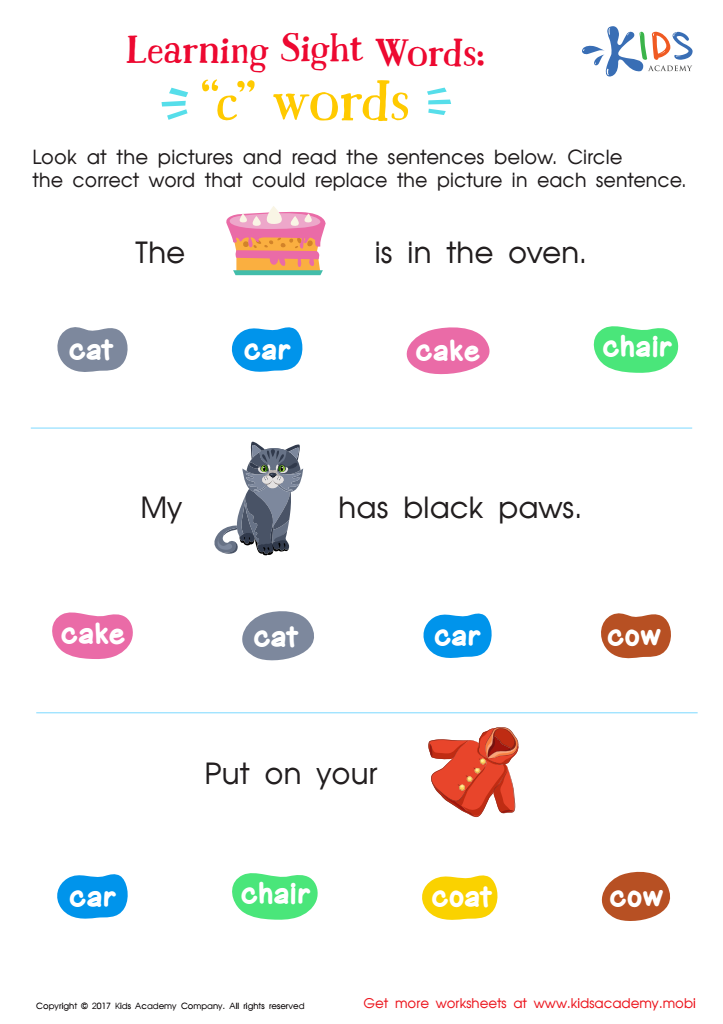

"C" Words Printable Sight Words Worksheet
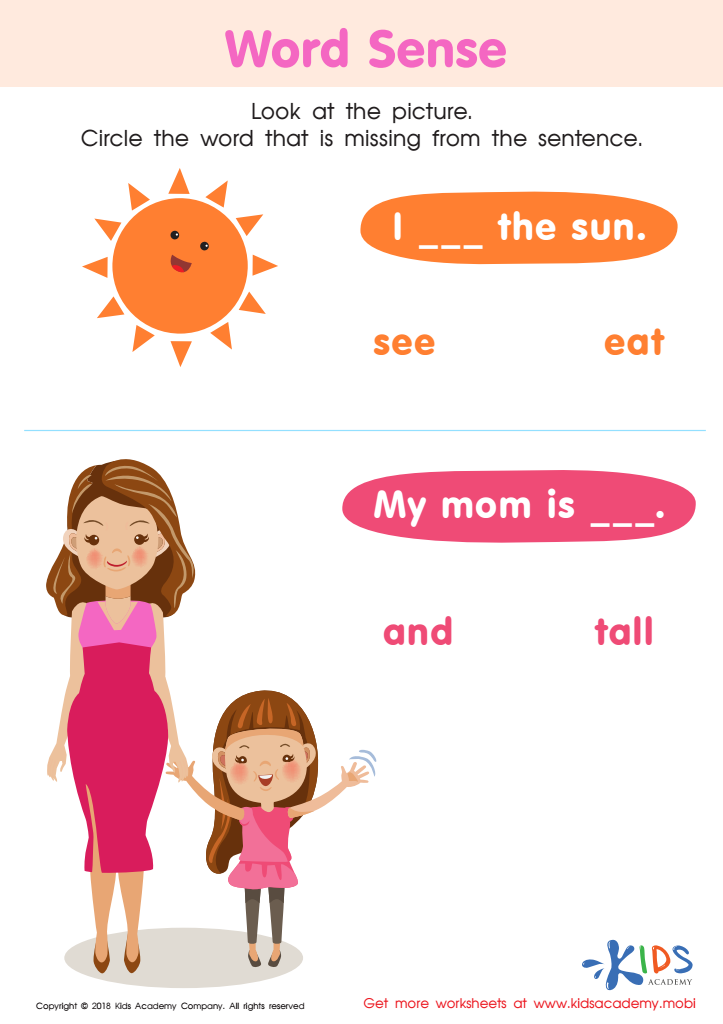

Word Sense Worksheet
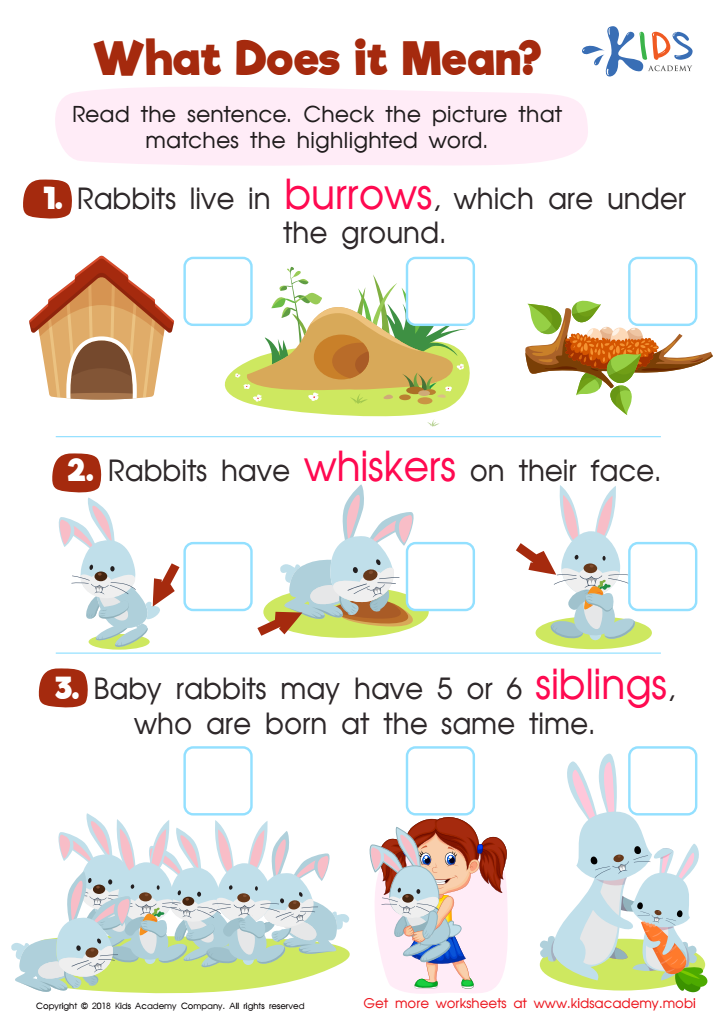

What Does It Mean? Worksheet
Building vocabulary at an early age is crucial for a child's overall cognitive development and future academic success. For children ages 3-9, expanding their vocabulary directly impacts their ability to comprehend and communicate effectively. During this formative period, children's brains are exceptionally receptive to absorbing new words. A rich vocabulary lays the foundation for reading comprehension, enabling children to grasp more complex ideas and texts as they advance in school. This comprehension is closely linked to overall academic performance, as it allows children to excel in subjects across the curriculum.
In addition to academic benefits, a broad vocabulary enhances a child's social and emotional development. When children can express their thoughts and feelings effectively, they are better equipped to build relationships and navigate social situations. Furthermore, vocabulary skills are critical for self-expression and cognitive development. They encourage thinking, reasoning, and creativity.
Parents and teachers play a pivotal role in nurturing vocabulary growth. Simple actions, like engaging in conversations, reading aloud, and playing word games, can significantly impact. By prioritizing vocabulary expansion, adults are not just teaching words but fostering a child’s discovery, curiosity, and confidence, setting a lifelong foundation for intellectual development and effective communication.
 Assign to My Students
Assign to My Students















